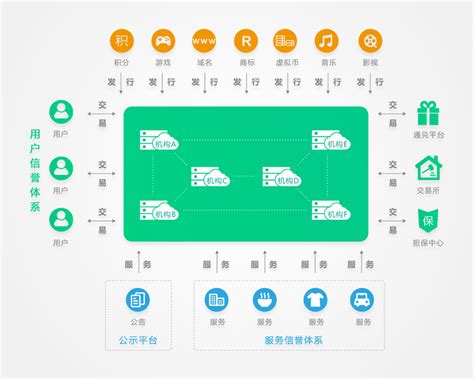2021-2025区块链商业模式
Title: Exploring BlockchainBased Shared Business Models

In recent years, blockchain technology has emerged as a disruptive force across various industries, revolutionizing traditional business models. One of the most intriguing applications of blockchain is in the realm of shared business models. This article delves into the concept of blockchainbased shared business models, their benefits, challenges, and potential applications across different industries.
Understanding BlockchainBased Shared Business Models
Blockchainbased shared business models leverage the decentralized and immutable nature of blockchain technology to facilitate transparent, secure, and efficient sharing of resources, assets, or services among multiple parties. Unlike traditional centralized models, where a single entity controls and manages the platform, blockchainbased shared business models operate on distributed networks, enabling peertopeer interactions without the need for intermediaries.
Key Components of BlockchainBased Shared Business Models
1.
Decentralized Ledger:
At the core of blockchainbased shared business models is a decentralized ledger, which records all transactions and interactions among participants. This ledger is distributed across multiple nodes in the network, ensuring transparency, security, and integrity of data.2.
Smart Contracts:
Smart contracts are selfexecuting agreements coded on the blockchain, automating the enforcement and fulfillment of contractual terms between parties. They eliminate the need for intermediaries, reduce transaction costs, and streamline processes in shared business ecosystems.3.
Tokenization:
Tokenization involves representing realworld assets or utility within a blockchain network through digital tokens. These tokens serve as units of value exchange, incentivizing participation, and facilitating seamless transactions within shared business models.4.
Consensus Mechanisms:
Consensus mechanisms ensure agreement among network participants regarding the validity of transactions and the state of the ledger. Proofofwork, proofofstake, and other consensus algorithms govern how new transactions are validated and added to the blockchain.Benefits of BlockchainBased Shared Business Models
1.
Transparency and Trust:
Blockchain's transparent and immutable nature fosters trust among participants by providing a tamperproof record of transactions and activities.2.
Cost Efficiency:
By eliminating intermediaries and automating processes through smart contracts, blockchainbased shared business models reduce overhead costs and transaction fees.3.
Enhanced Security:
The cryptographic principles underlying blockchain technology ensure robust security, protecting sensitive data and mitigating risks such as fraud and cyberattacks.4.
Increased Accessibility:
Blockchainbased shared business models promote inclusivity by enabling broader access to resources, assets, and services, particularly in underserved or marginalized communities.5.
Innovative Opportunities:
The programmability of blockchain allows for the creation of novel incentive mechanisms, token economies, and decentralized applications (DApps), driving innovation and experimentation in shared business ecosystems.Challenges and Considerations
1.
Scalability:
Scalability remains a significant challenge for blockchain networks, especially in shared business models with high transaction volumes. Efforts are underway to improve scalability through layer 2 solutions and protocol upgrades.2.
Regulatory Compliance:
Regulatory uncertainty and compliance requirements pose challenges for blockchainbased shared business models, particularly in industries subject to stringent regulations such as finance and healthcare.3.
Interoperability:
Ensuring interoperability among diverse blockchain platforms and networks is essential for seamless integration and collaboration within shared business ecosystems.4.
Privacy Concerns:
While blockchain offers transparency, maintaining privacy for sensitive data is crucial. Solutions such as zeroknowledge proofs and privacypreserving protocols are being developed to address privacy concerns in blockchain applications.Applications Across Industries
1.
Supply Chain Management:
Blockchainbased shared business models enhance transparency and traceability in supply chains, enabling stakeholders to track the journey of products from source to destination, thereby combating counterfeit goods and ensuring product authenticity.2.
Real Estate:
Shared ownership and fractionalized investment in real estate properties can be facilitated through blockchainbased platforms, allowing individuals to invest in highvalue assets with lower barriers to entry and increased liquidity.3.
RideSharing and Mobility:
Decentralized ridesharing platforms powered by blockchain enable peertopeer transactions, efficient matching of drivers and passengers, and transparent revenue distribution, disrupting traditional ridesharing models dominated by intermediaries.4.
Energy Trading:
Blockchain facilitates peertopeer energy trading among prosumers (consumers and producers of energy), enabling efficient utilization of renewable energy resources, decentralized grid management, and equitable distribution of energy surplus.Conclusion
Blockchainbased shared business models represent a paradigm shift in how resources, assets, and services are exchanged and managed across various industries. While challenges such as scalability and regulatory compliance persist, the transformative potential of blockchain technology in fostering transparency, efficiency, and inclusivity cannot be overlooked. By embracing innovation and collaboration, businesses can harness the power of blockchain to create sustainable and equitable shared ecosystems for the future.
This HTML document provides a comprehensive overview of blockchainbased shared business models, encompassing their key components, benefits, challenges, and applications across industries. Whether you're an industry insider exploring new opportunities or an enthusiast intrigued by the potential of blockchain technology, this guide offers valuable insights into the evolving landscape of shared business models in the digital age.











